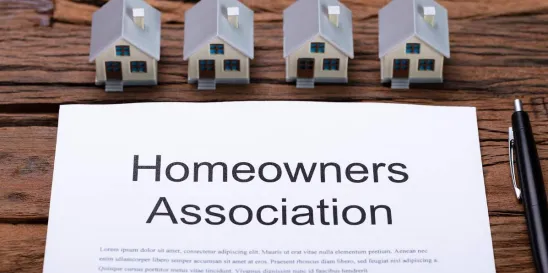In BLF LLC v. Landing at Blanco Prop. Owners Ass’n, member of a home owners association sued to prevent the association from selling certain common area property. No. 03-22-00423-CV, 2023 Tex. App. LEXIS 9300 (Tex. App.—Austin December 13, 2023, no pet. history). Among other theories, the members alleged that the trust existed for their benefit. After the trial court granted summary judgment for the association, the members appealed.
The appellate court affirmed and held that there was no trust:
First, the Bayliffs assert that the trial court erred in granting summary judgment because the summary-judgment evidence is sufficient to create a fact issue as to whether they have “equitable title in an undivided interest of the parkland and amenities” that prevents the Association from selling Lot 15 over their objections. Equitable title is a right, enforceable in equity, to have the legal title to real estate transferred to the owner of the right upon performance of specified conditions. In the trust context, the holders of equitable title to property “are considered the real owners,” and the trustee vested with legal title “holds [the property] for the benefit of” the equitable-title holder. In effect, the Bayliffs contend that the developer created a trust in Lot 15, with the homeowners as the beneficiaries and the Association as the trustee.
A trust is a method used to transfer property. To determine if a trust has been created, we look to the settlor’s intent. While technical words are not necessary, the beneficiary, the res, and the trust purpose must be identified in the written instrument. In this case, nothing in the deed language conveying Lot 15 from the developer to the Association suggests that the developer intended for the Association to hold title to the property in trust. For example, the deed does not use the terms “trust,” “beneficiaries,” or “trustee.” Although the Declaration generally defines “common areas” as “that portion of the subdivision owned by the Association for the common use and enjoyment of the members of the Association,” including “those areas of land and improvements thereon deeded to the Association,” we conclude that this language fails to demonstrate a clear intent to create a trust for the individual benefit of the Bayliffs in Lot 15. At best, the Declaration requires the Association to act in the collective interest of the Landing property owners in its maintenance of the Landing common areas, including Lot 15. In short, nothing in the language of the Declaration suggests that the Bayliffs have equitable title to Lot 15, such that any future transfer of the lot by the Association without the Bayliffs’ consent would be “illegal or against public policy.”
Id.




 />i
/>i

